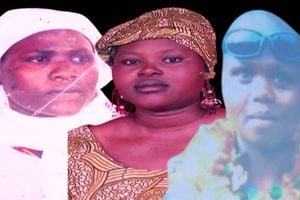Huge sigh of relief as State secures Sh1.2bn vaccines

President William Ruto displays the Kenyan flag after the country formally joined the International Vaccine Institute (IVI) during the accession ceremony in Seoul, South Korea.
What you need to know:
- Investigations by the Nation in public health facilities around the country found that they did not have the life-saving vaccines.
Most of the babies born in the last three months have not been vaccinated.
The Ministry of Health yesterday announced that routine childhood vaccines worth Sh1.25 billion have been purchased, although some hospitals still reported a shortage.
In a statement, State Department for Medical Services Principal Secretary Harry Kimtai said that the United Nations Children’s Fund (Unicef) had delivered BCG, Oral Polio, Tetanus-Diphtheria and Measles-Rubella vaccines to the country.
An insider at the Health ministry had said that the government had until July 1 to pay Unicef and Gavi a Sh1.5 billion debt for the last financial year, before they could release a fresh consignment of Sh8 billion.
That is the reason why Unicef and Gavi had refused to supply vaccines to Kenya for this financial year.
Investigations by the Nation in public health facilities around the country found that they did not have the life-saving vaccines.
As a result, most of the babies born in the last three months have not been vaccinated.
The vaccines that were delivered are 1,209,500 doses for Measles-Rubella, Oral Polio (3,032,000 doses), foretanus-Diphtheri (1,000,000 doses) and BCG (3,129,000 doses).
“The vaccines are being processed for urgent distribution to nine regional vaccine stores across the country. To expedite this process, the Ministry of Health has engaged additional refrigerated trucks to ensure these life-saving vaccines reach our health facilities and communities by the second week of June 2024,” PS Kimtai said.
The government urged healthcare staff to work with community health teams to ensure all children who missed vaccines are up todate in their immunisation schedule.
Jabs available
“We urge all caregivers to take their children back to health facilities for immunization as vaccine supply has now normalised,” he said, adding that the ministry is grateful for the support received from Gavi, the Vaccine Alliance, that made the jabs available.
“The Ministry of Health is exploring innovative options for sustainable financing of vaccine procurement and programme operations to prevent future stockouts,” Mr Kimtai assured.
At the same time, President William Ruto has said Kenya has formally joined the International Vaccines Institute (IVI) as a state party.
The President said IVI has committed to establish a country and project office in Nairobi, which will be the organisation’s regional headquarters.
This comes after the cost of Covid-19 vaccines pushed many Global South countries, Kenya included, at the back of the queue during the pandemic.
As a result, Kenya decided to manufacture vaccines, biotherapeutics and diagnostics. And in February last year, the country officially presented a letter seeking to join IVI that is based in Seoul, South Korea.
Vaccine nationalism
Speaking during the accession ceremony to the IVI in Seoul, President Ruto said during the Covid-19 pandemic, Kenyans and millions of people on the African continent bore the brunt of arbitrary distribution and denial of access to vaccines. He said there was vaccine nationalism, and the situation was magnified by Africa’s over-reliance on external manufacturers.
“The time has come, therefore, for Africa to actualise health sovereignty by liberating itself from dependency on unsustainable frameworks, and accelerating initiatives to become self-sufficient in vaccine production,” Dr Ruto said.
“A fundamental value of Pan-African solidarity is that no one is free until all people are free,” said, adding that in vaccine supply, no one is safe until everyone is safe.
“Making vaccines universally accessible to all our people, regardless of nationality and status is an urgent imperative that we must respond to,” he added.
The President said that Kenya joining IVI is the culmination of a well-coordinated joint endeavour between the Ministry of Health, the Kenya BioVax Institute, the Kenya Medical Research Institute and experts from IVI.
The Head of State urged developers to keep pushing the boundaries of innovation and enhance support for research and development in biotechnology because that will enable the African continent to take charge and define the future of healthcare.
Technology transfer
“Membership to IVI gives Kenya access to a network for vaccines and technology transfer as we build our internal self-reliance through local manufacturing,” Health Cabinet Secretary Susan Nakhumicha who accompanied President Ruto to South Korea said.
In an interview with the Nation, IVI Director-General Dr Jerome Kim explained that IVI is an international organisation with a mission to discover, develop and deliver safe, effective and affordable vaccines for global health.
“IVF works on diseases that major vaccine companies do not want to work on,” he said, adding that IVI develops vaccine solutions and transfers them to companies that will be the ultimate manufacturers.
“We help these companies to develop and test the vaccine, to secure approvals from local and international regulatory authorities and then work with Gavi, and others to make sure that the vaccines are used and make an impact.





